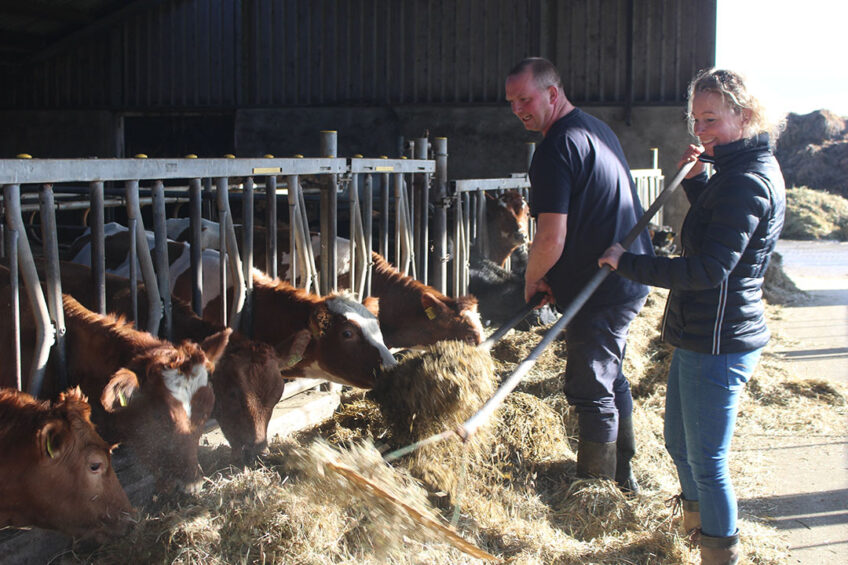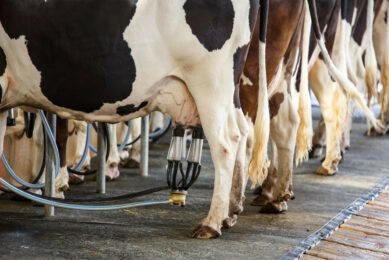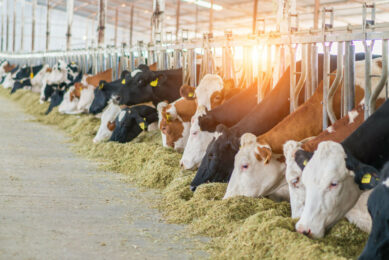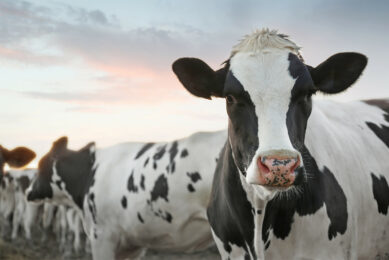Tackling dairy farming problems from the ‘bottom up’

Sharing knowledge and ideas is crucial when it comes to tackling problems in the dairy industry. But is there a different method that can lead to better outcomes?
Quite often when discussing problems with farmers the challenge doesn’t come from trying to highlight which changes need to be made, but how to implement these in a practical way that can be most challenging. When it comes to thinking outside the box or coming up with innovative solutions it can be beneficial for farmers to look to their peers for input and support rather than just receive advice through a ‘top down’ approach. A recently published study by Morgans et al. in the Journal of Dairy Science built on the concept of the Scandinavian Stable Schools through the formation of Farmer Action Groups to tackle antimicrobial usage from the ‘bottom up’.

Farmer Action Groups
The project involved a total of 30 dairy farms based in South West England who participated in the project from July 2016 until June 2018. The farms were divided into groups of 5-8 based on geographical location and met every 4 to 8 weeks. The meetings were organised in 2 phases; during the first phase each group member had to ‘host’ a meeting on their farm and during the second phase the farms were re-visited to evaluate any changes that had been made on, and reflect on what they had learnt from the first phase.
The specific approach developed for the Farmer Action Groups differed from the original Stable School methodology in 3 ways:
- It focused specifically on antimicrobial use data rather than key performance indicators.
- It introduced additional (qualitative) methods of measuring knowledge and responsible antibiotic use rather than just using quantitative data alone.
- Finally, the facilitators not only collated the pre-meeting information but also helped the farmers understand and interpret this at the meeting.
Focusing on overcoming challenges on their farm
The meetings themselves were focused around assisting the host farmer in overcoming specific challenges on their farm. Each meeting started with a ‘catch up’ session with everyone discussing what had been happening on their own farms since the last meeting before the focus shifted to the host. The facilitator presented the host farm’s antimicrobial use with additional benchmarking before a farm walk was undertaken during which the host was able to highlight specific areas they wanted to focus on. Following the farm walk it was the chance for the group to feedback their ideas and recommendations to the host before the creation of a list of practical recommendations for the host farm.
Some of the most consistent benefits that farmers mentioned were the sharing of new and applied knowledge as well as the feeling of support and empowerment from their peers and facilitators. The practical elements of the knowledge and recommendations were particularly valued which demonstrates that it is not just the ‘what’ but also the ‘how’ that is important when it comes to influencing behaviour on farm.
 How to prioritise a good, comfortable cubicle
How to prioritise a good, comfortable cubicle
Comfortable cubicles are more than just a place where cows get to lie down. They stimulate resistance, cows perform better and are calm plus so much more.
Recommendations: From bedding to cubicle design
Each action plan contained an average of 10 recommendations and included measures to both change antimicrobial choice to avoid the use of critical antibiotic choices, but also measures to preventive antimicrobial use in the first instance.
Of the total 304 recommendations the 3 most common actions were centred on:
- cubicle shed design and bedding choice (49)
- lameness management (29)
- antimicrobial type/use (28)
This indicates the potential for wider gains from the peer groups other than just reducing antimicrobial usage, despite this being the focus.
During phase 2 of the meetings the action plans were reviewed at which point 29 of the 30 farms had implemented at least one of the actions. 54.3% of the total number of actions had either been fully or partially implemented by the follow-up meeting, which compares favourably to some existing ‘top down’ approaches such as advisor-led control plans.
Perhaps not unexpectedly there was a wide range in perceived benefit from some of the actions implemented and acknowledgement that the full effect of some of these may not yet have been seen. Time was highlighted as a major constraint to the implementation of changes, however, farmers did value having a long term plan that they could follow through and implement beyond the project.
Antimicrobial use reduced
Not only did the farmers feel that they benefited from the meetings, crucially it also translated into results in terms of antimicrobial use. By the end of the project 21/30 farms had reduced or eliminated their use of high priority critically important antibiotics.
Research has provided us with many of the answers required to tackle some of the biggest health and welfare challenges we face in the dairy industry, but this can only lead to change if it is presented in a practically implementable way. Exploring different ways of knowledge exchange and learning is vital to keep striving towards a more sustainable industry. The Farmer Action Groups present a different method of tackling problems from the ‘bottom up’ through peer learning leading to better outcomes on farm which are beneficial to all.
Join 13,000+ subscribers
Subscribe to our newsletter to stay updated about all the need-to-know content in the dairy sector, two times a week.










